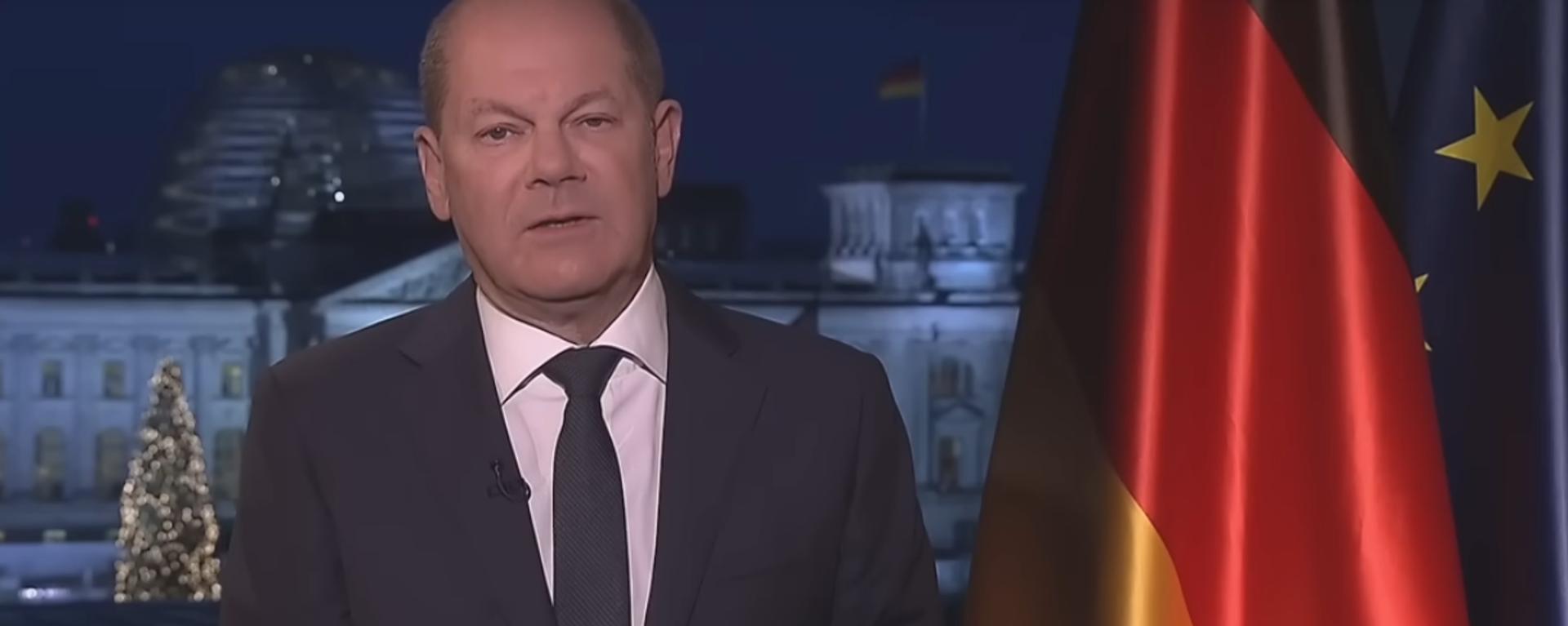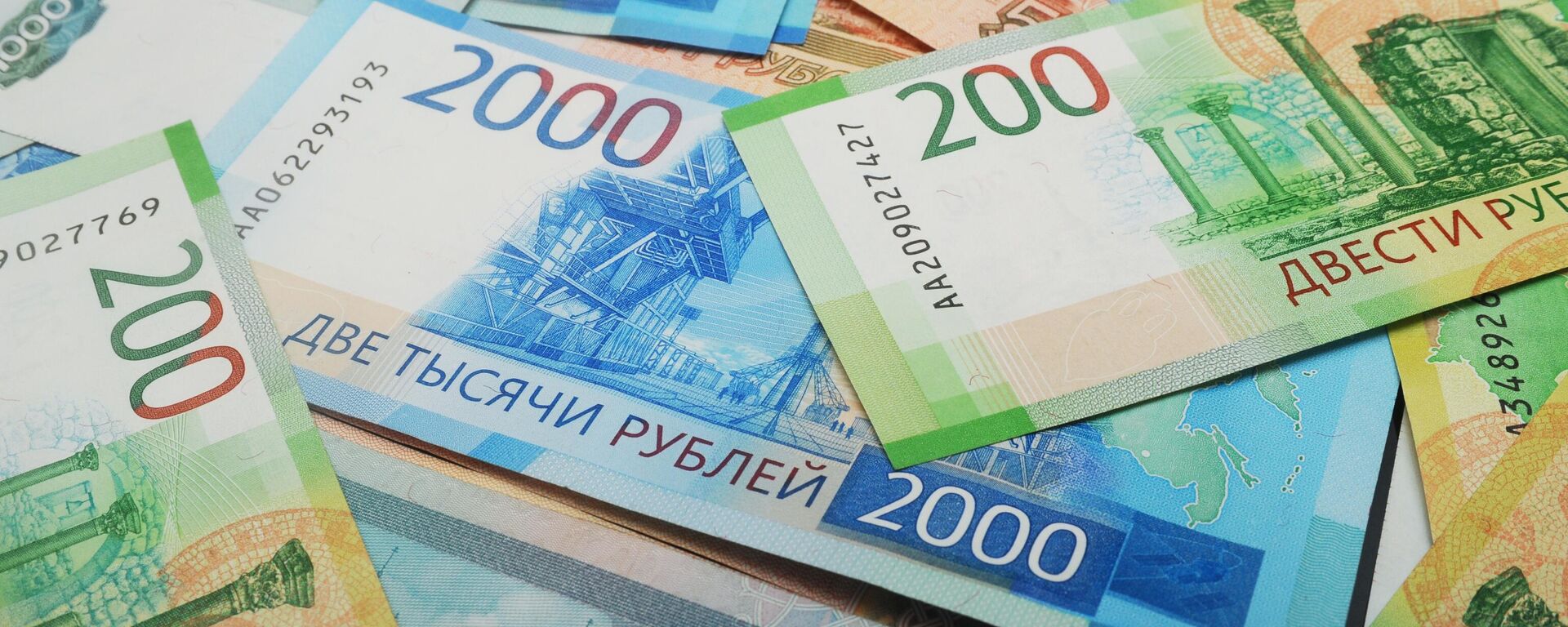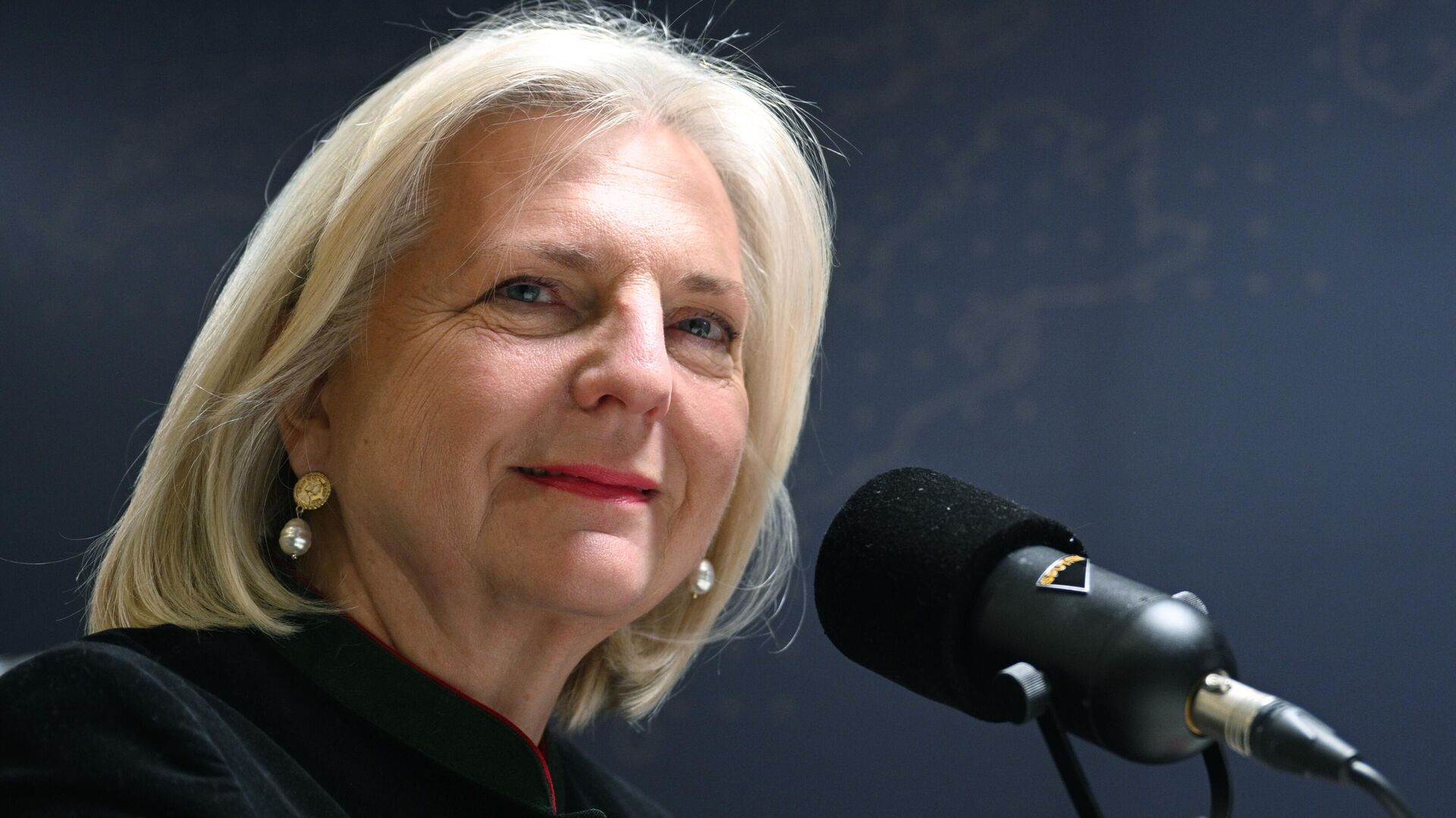https://sputnikglobe.com/20240101/putin-on-the-mark-in-predicting-russia-would-overtake-germanys-economy---ex-austrian-fm-1115931447.html
Putin 'On the Mark' in Predicting Russia Would Overtake Germany's Economy - Ex-Austrian FM
Putin 'On the Mark' in Predicting Russia Would Overtake Germany's Economy - Ex-Austrian FM
Sputnik International
President Vladimir Putin was right when he predicted Russia would overtake Germany on the list of top economies by purchasing power parity (PPP), former Austrian Foreign Minister Karin Kneissl has said.
2024-01-01T14:55+0000
2024-01-01T14:55+0000
2024-01-01T14:55+0000
world
russia
ukraine
karin kneissl
germany
vladimir putin
recession
economic recession
sanctions
russian economy under sanctions
https://cdn1.img.sputnikglobe.com/img/07e7/02/0a/1107325830_0:115:3235:1934_1920x0_80_0_0_8da573315112dee16a28e689061b79fb.jpg
The situation in the global economy has swung significantly in Russia’s favor, former Austrian Foreign Minister Karin Kneissl underscored in an interview with journalist Flavio von Witzleben.Kneissl lauded President Vladimir Putin’s economic policy forecast in June as spot on. She recalled Putin’s words at the St. Petersburg Economic Forum, when he noted in a plenary speech that despite Western sanctions over Ukraine, Russia was among the ten largest economic powers, ranking sixth at the time.The Russian leader also suggested that his country might successfully challenge Germany for fifth place on the list of top economies by purchasing power parity (PPP).That forecast was proven correct just two months later, Kneissl said. By August, Russia had become the fifth-largest economy in the world in defiance of pessimistic projections from the West.The Russian Federation had "moved ahead of the Federal Republic of Germany in terms of purchasing power parity, in terms of the size of the economy," Putin said at the Council on Strategic Development and National Projects in late August. He added that growth rates were steady, including in industry and the budget situation risk-free.The West had short-sightedly fallen in line with the US-driven narrative that Russia could be “crippled” by sweeping punitive embargos and restrictions. But the sanctions imposed over Russia’s military operation in Ukraine backfired.Europe’s industrial behemoth Germany was particularly hard-hit as inflation soared and energy prices spiked. The country’s industrial output slumped after losing access to cheap and reliable Russian hydrocarbon supplies. The destruction of the Nord Stream pipelines on September 26, 2022, made the problem even worse, as it forced Germany to largely shift to expensive liquefied natural gas (LNG) from the United States.Along with recession, which the German economy officially sank into in May, Berlin is facing the prospect of widespread de-industrialization as production costs soared. Germany’s state budget has has been sucked dry by billions of euros in military, economic and financial aid to Ukraine.Russia, by contrast, has managed to weather the sanctions, adapting its economy to the new challenges, forging new partnerships and exploring fresh opportunities on the global market.The World Bank reported in August that by the end of 2022, Russia's wealth in purchasing power parity (PPP) terms exceeded $5 trillion for the first time. That placed Russia ahead of western Europe's three biggest economies — France, the UK and Germany.PPP takes into account the varying cost of goods and services between different countries, not just raw gross domestic product (GDP).
https://sputnikglobe.com/20231231/scholz-claims-putin-to-blame-for-germanys-economic-woes-in-new-years-speech-1115921603.html
https://sputnikglobe.com/20230810/russian-economy-overtakes-germany-uk-and-france-despite-western-sanctions-1112511026.html
russia
ukraine
germany
Sputnik International
feedback@sputniknews.com
+74956456601
MIA „Rosiya Segodnya“
2024
News
en_EN
Sputnik International
feedback@sputniknews.com
+74956456601
MIA „Rosiya Segodnya“
Sputnik International
feedback@sputniknews.com
+74956456601
MIA „Rosiya Segodnya“
russian economy growth, anti-russian sanctions, russia overtakes germany on the list of top economies, purchasing power parity, ppp, germany facing an economic crisis, germany facing deindustrialization
russian economy growth, anti-russian sanctions, russia overtakes germany on the list of top economies, purchasing power parity, ppp, germany facing an economic crisis, germany facing deindustrialization
Putin 'On the Mark' in Predicting Russia Would Overtake Germany's Economy - Ex-Austrian FM
Ever since Berlin chose to align itself with Washington's policy of sweeping embargoes and sanctions targeting Moscow over the Ukraine crisis, Europe's one-time industrial powerhouse has fallen on hard times. Along with inflation and recession, Germany is facing the stark prospect of widespread de-industrialization.
The situation in the global economy has swung significantly in Russia’s favor, former Austrian Foreign Minister
Karin Kneissl underscored
in an interview with journalist Flavio von Witzleben.
Kneissl lauded President Vladimir Putin’s economic policy forecast in June as spot on. She recalled Putin’s words at the
St. Petersburg Economic Forum, when he noted in a plenary speech that despite Western sanctions over Ukraine, Russia was among the ten largest economic powers,
ranking sixth at the time.The Russian leader also suggested that his country might successfully challenge Germany for
fifth place on the list of top economies by purchasing power parity (PPP).
That forecast was proven correct just two months later, Kneissl said. By August, Russia had become the fifth-largest economy in the world in defiance of pessimistic projections from the West.
The Russian Federation had "moved ahead of the Federal Republic of Germany in terms of purchasing power parity, in terms of the size of the economy," Putin said at the Council on Strategic Development and National Projects in late August. He added that growth rates were steady, including in industry and the budget situation risk-free.
The West had short-sightedly fallen in line with the US-driven narrative that Russia could be “crippled” by
sweeping punitive embargos and restrictions. But the sanctions imposed over Russia’s military operation in Ukraine backfired.
Europe’s industrial behemoth Germany was particularly hard-hit as inflation soared and energy prices spiked. The country’s industrial output slumped after losing access to cheap and reliable Russian hydrocarbon supplies. The destruction of the
Nord Stream pipelines on September 26, 2022, made the problem even worse, as it forced Germany to largely shift to expensive liquefied natural gas (LNG) from the United States.
Along with recession, which the German economy officially sank into in May, Berlin is facing the prospect of
widespread de-industrialization as production costs soared. Germany’s state budget has has been sucked dry by billions of euros in military, economic and financial aid to Ukraine.

31 December 2023, 17:51 GMT
Russia, by contrast, has managed to
weather the sanctions, adapting its economy to the new challenges, forging new partnerships and exploring fresh opportunities on the global market.
The World Bank reported in August that by the end of 2022, Russia's wealth in purchasing power parity (PPP) terms exceeded $5 trillion for the first time. That placed Russia ahead of western Europe's three biggest economies — France, the UK and Germany.
PPP takes into account the varying cost of goods and services between different countries, not just raw gross domestic product (GDP).

10 August 2023, 17:52 GMT






